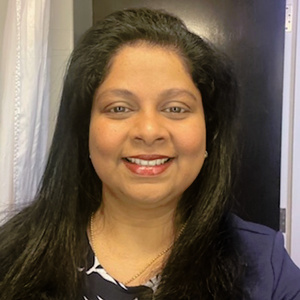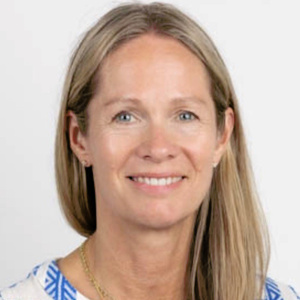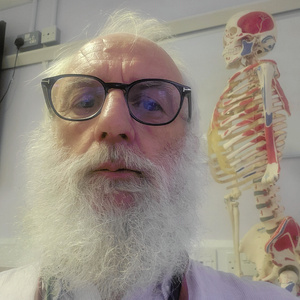Volunteers' Week is a fantastic opportunity to highlight the incredible work of our volunteer members, without whom we would be unable to deliver essential services for pathology.
This year, we want to shine a spotlight on the members who support us in delivering the College’s examinations. This spring, over 1,200 people took RCPath examinations. This requires the hard work and collaboration of hundreds of volunteers, working alongside our dedicated Exams team.
One of the College’s key aims is to ensure that our curricula, assessments and examinations promote the highest standards of pathology. To achieve this, we work with around 1,300 volunteer members to develop and deliver the FRCPath, Diploma and Certificate examinations across 17 pathology specialties. Our members’ expertise and dedication are vital for this work, helping to uphold excellence in patient care and safety in a diverse and ever-evolving profession.
What better way to recognise the work of our members than by hearing from them directly?
Over this week, we will publish the reflections of our volunteer examiners in 3 blogs where they discuss their role, how it benefits them and why they choose to support College examinations. Thank you to everyone who took the time to send these to us.

Dr Anu Gunavardhan, Consultant Histopathologist
“As we celebrate Volunteers’ Week at the Royal College of Pathologists, I feel privileged to reflect on my journey and role as a local lead examiner for North Wales Centre for the FRCPath Part 2 examination in histopathology.
I trained as a histopathologist in India and have been working as a substantive consultant at Glan Clwyd Hospital in North Wales for the past 8 years. While diagnostics and teaching are the backbone of our specialty, one of the most rewarding aspects of my professional life has been volunteering with the College, particularly through my involvement in the FRCPath examination process.
My passion for organisation naturally drew me to this role. I’ve always enjoyed planning educational events and contributing to structured learning experiences – the FRCPath Part 2 exam represents the pinnacle of such endeavours. It’s not just an assessment; it’s a coordinated, high-stakes event requiring careful orchestration, attention to detail, and a deep sense of fairness and professionalism.
As local lead examiner, I’ve come to appreciate just how much goes on behind the scenes. From finding a good venue that meets the requirements to the logistics of exam materials as well as communications with the examiner team and candidates – every step must be managed with precision. The responsibility is immense, but so is the sense of purpose. Being entrusted with upholding the standards of our profession, ensuring consistency and integrity, and supporting the next generation of consultants is both humbling and fulfilling.
What makes this role truly special, however, is the team. The camaraderie among fellow examiners, College staff and volunteers is a joy to witness and be part of. There’s a collective spirit, a shared mission that binds us together, and I always come away from exam weeks feeling inspired and energised.
Volunteering with the College has enriched my career in ways I hadn’t imagined when I first joined the consultant workforce. It’s an opportunity to give back, to help shape the future of pathology and to remain engaged in the broader community of our specialty.
To anyone considering getting involved – I wholeheartedly encourage you. The work is meaningful, the people are wonderful and the experience is immensely rewarding.
Thank you to RCPath for the opportunity and for recognising the contributions of all its volunteers this week.”

Professor Alison Campbell, Fellow in Reproductive Science
“In my specialty, there are not very many of us so the pool of expert examiners is small. As a fellow and Chief Scientific Officer of Care Fertility – a leading network of fertility clinics – I am able to bring my experience to my volunteer role.
I chose to volunteer with the College on examinations as I wanted to give something back, to learn more about the robust processes behind the examinations and to set an example to my scientific colleagues. I find it a rewarding experience as I enjoy working with other fellows to ensure the examinations are fair and sufficiently challenging. I also like to see others develop in their roles and become fellows of the College.”
Dr Tom Gowanlock, Consultant Histopathologist
“I am a consultant histopathologist at the West Suffolk Hospital in East Anglia, working in a fairly small department comprising 8 consultant histopathologists, 1 consultant biomedical scientist and 1 histopathology specialist trainee.
I first acted as an examiner in 2021, when I was 6 years into my consultant post. At the time I was looking for ways to widen my role, to form networks with colleagues from elsewhere and to give something back to the specialty. I sat the FRCPath Part 2 examination more than once, so I’m aware of what a big step it is in the journey of becoming a histopathologist, and the challenges trainees face while taking the exam. I’ve become increasingly aware of the role the exams have in maintaining standards in pathology and, hence, patient safety, as well as wellbeing in the workplace. With ever-increasing global interest in RCPath exams, they also play a role in maintaining standards worldwide.
I have found that being an examiner is a very rewarding role, and there are many ways to get involved – some online and some in person. I have taken part in setting cases and questions for both the Part 1 and 2 histopathology exams, standard setting for the Part 1 exam, marking papers, acting as a senior examiner in viva stations at Part 2 centres and acting as lead examiner for a Part 2 centre. I have also been privileged enough to act as an external examiner and observer for the equivalent fellowship examinations of the Arab Board of Pathology in Jordan, and the Pakistan College of Physicians and Surgeons.
I always learn a lot from my involvement, whether it be from reviewing cases and picking up on updates to terminology or ancillary tests, seeing material I don’t encounter in my day-to-day practice, or getting insights from colleagues into how other departments manage training and workload challenges.
Examining goes hand in hand with teaching and training, and I have on several occasions been able to provide what (I hope!) are useful teaching sessions to trainees approaching the Part 2 exam, covering how to approach the various components. I have also found being an examiner assists and supports my role as an educational and clinical supervisor.
Overall, the role of an examiner is a great opportunity to become part of a community of people dedicated to improving training and taking responsibility for the future of the specialty, as well as the wellbeing of those who choose to pursue a career within it. It is also an opportunity to expand one’s horizons and meet current and future colleagues from different parts of the world.”

Dr Emyr Wyn Benbow, Consultant Histopathologist
“I'm a histopathologist, with special interests in autopsy and gastrointestinal autopsy. However, my primary job is working for Manchester Medical School where I've played various roles around examinations, including being academic lead for the process for the whole school.
My first role in respect to College examinations was my involvement in the change of format of the Part 1 MRCPath in histopathology where an essay paper was replaced with scenario-based multiple choice questions. I was also part of the team, with Ray McMahon and Sebastian Lucas, who developed the Certificate of Higher Autopsy Training. I wanted to ensure trainees were being assessed in a suitable way.
My primary motivation for involvement with assessment processes, both for RCPath and medical schools, is that this is a fantastic way to keep up my learning and because quality checking of examination papers allows me to demonstrate and enjoy my skill of nit-picking.”
The College is always in need of volunteers to support our work in examinations and assessment. Whatever your specialty or skillset, we’d love to have you on board. Please head to our volunteer pages to find out more information on the roles and how to apply.
We'll be publishing more testimonials from our volunteer examiners over the next few days, so do keep an eye out.
If you have any questions or comments about this blog series, or if you have any suggestions for future blogs, please contact the Member Engagement and Support team.

